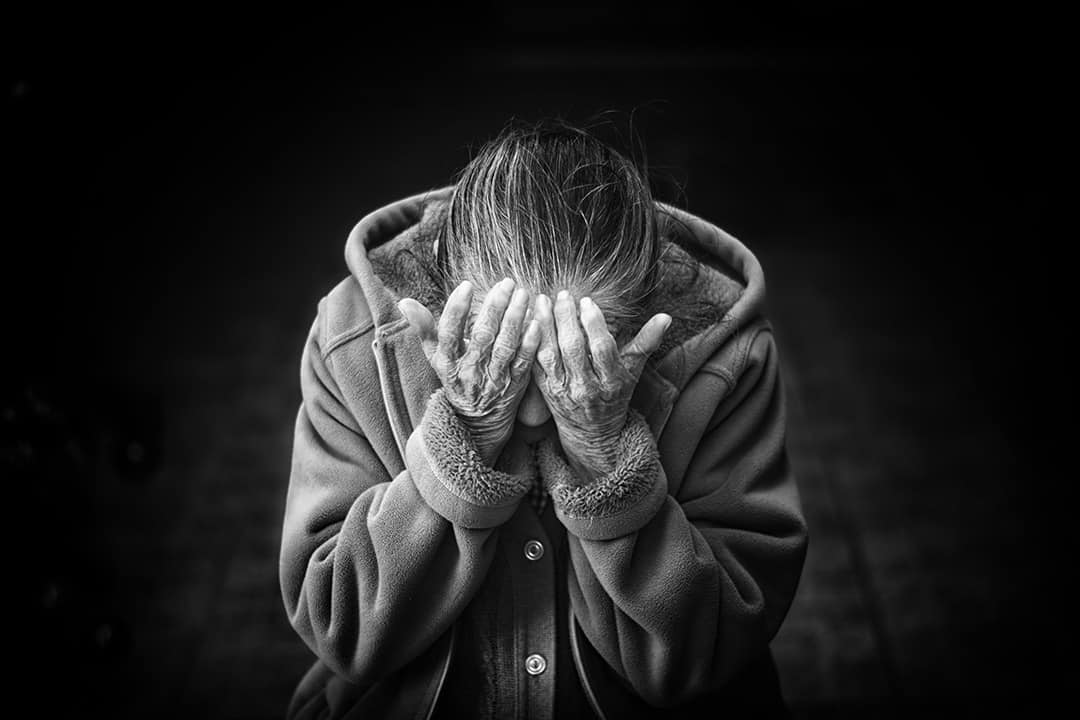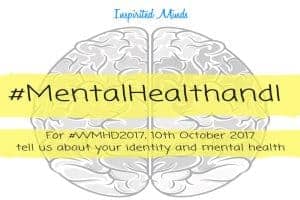Who am I? Am I my religion? My gender? My race? Am I my hobbies and interests, or is it other people who define me? Identity is a complicated and confusing concept. As a mixed race child brought up in a mixed faith household, my identity was subject to daily wondering. On the one hand I was a white British, sometimes atheist, sometimes Catholic child. On the other I was an Arab Libyan Muslim child. It was either one or the other, in one parent’s house I was one, in the other I was the other. One tried to erase the other, but I never truly fitted in. I was either never British enough or never Arab enough. Each parent stood firm that I was just British or just Arab, as though these two aspects didn’t work together. The effect on me was something of confusion, something which at 23 still sticks with me. The feeling of never quite fitting in anywhere can really affect one’s mental health and the anxiety surrounding one’s identity can develop into something more severe.
Muslims of all ethnicities can experience a conflict of identities and this can be exacerbated through being first, second, or third generation British Muslims. There can be disagreement between generations in the family, whether it be about tradition vs modern practices. Often with older generations, especially those who may not be British born, can enforce ethnic and religious customs. Younger and British born Muslims may reject some of these or want to partake in activities that may be frowned upon but would be considered more “British”. Many are often scared to show one side to the other, for example there is often pressure on young people to drink alcohol even if this is forbidden by Islam. Or many young Muslims wouldn’t want to pray in front of friends due to the fear of having to explain what they’re doing, or even pray in public with the fear of being labelled as an impulsive yogi. A standard concern for older parents is that their children are losing their native tongue, where their children speak english at home, and find it difficult to communicate with their parents or may not see it as an important part of their identity.
Let’s bring back last week’s social categories/in group bias ideas back into the equation. Social categories and stereotyping go hand in hand according to social Psychologist, Jane Elliot (1968) who conducted a classroom study where brown and blue eyed children were subjected to discrimination based on their eye colours found that self-fulfilling prophecies and plain racism can escalate rapidly, and showed how quickly stereotyping can be shaped, in such minimal conditions. Although it’s a wide comparison, but we cannot deny that Islamophobia has similar basis. It’s also undeniable that Islamophobia can impact your Muslim identity. If the wider public are constantly saying that Muslims are not welcome, Islam is backward, we are all terrorists, we need to go back to where we came from, and are getting mistreated in schools, the workplace and in public – what does it lead to? Despite us living here and partaking in British society and contributing to astounding work, it can further add confusion to one’s identity and multiply the conflict of “where do I belong, and where do I go?”
The Prophet (pbuh) said: “There is no superiority of an Arab over a non-Arab or of a non-Arab over an Arab, or of a red man over a black man or of a black man over a red man, except in piety” [Sahih – Albani]
We want to know how your identity affects your mental health, or how you identify yourself with your mental health. Today is World Mental Health Day, and we want to celebrate who we are with #MentalHealthandI






Dear Jamila,
I read your post with great interest .
The role of social identity and mental health is very important and intrinsic to who we are as Muslims. As a Social Psychiatry lecturer my whole research area is tied into aspects of how faith identity can play a role in resilience. As an academic, I also concur with you that Islamophobia is a very real part of the British Muslim experience. Sadly it remains rampant in all aspects of society and I cannot recount to you how many times I’ve had to explain, with little understanding, why it may be insensitive to hold departmental lunches during Ramadan or that a religious studies department holding a wine reception may be off-putting to Muslim students. Muslim academics have to balance a fine line of manifesting our faith least we are told we are promoting an agenda and in my personal experience I recall being told to prove I can write and that Muslim identity is a hindrance in mental health. Clearly the implications there are alarming. I commend you for your blog post as it is only through discourse and dialogue and sabr that we can engage with these insensitivities.
Well done for starting these discussions!
– Karim
A’slaamualaykum Karim, JazakAllah Khair for your comment and input. It was really interesting to hear your thoughts and experience especially as an expert in this topic. We will actually be talking more about Islamophobia next month as part of #IAM2017, so please do stay tuned on our social media and it would be an honor to hear more of your thoughts. If you are interested in working together, please do email meanha.begum@inspiritedminds.org.uk. BarakAllah Feek!
In the past i was diagnose with depression and it had negative impact on life, also it effected my ability to think and focus on studies. Howver its nearly been 4 years and i m over it. Still i get negative thoughts back of my mind, I think I am not capable enough to do something in life. These negative thoughts makes me really frustrated and angry. I guess i get these negative thoughts because in my life things are not happening the way i want them to go. Nevertheless I am greatful of whatever i have done in my life. Luckly i got really supportive husband who understands why i am thinking like this and show me right path, also also motive and give me advise to think positive…. pray pray pray and be grateful of Allah
I see people making fun of others when they see a person in depression. Instead of laughing or making fun of them people need to help them. Also encourage them to do better in life… encouraging someone wont do any harm to anybody…
A’slaamualaykum Hafsa, we are sorry to hear about your experience with depression, and more so the reaction you received from people. It was really brave of you to say all of this, so JazakIllah Khair for sharing this with us. You’re absolutely right – there is no harm in encouraging someone, and this is exactly what we are working towards. We are glad to hear that you’re doing much better, may Allah make it easy for you. If you would like to share your journey on our blog, please do email meanha.begum@inspiritedminds.org.uk, it would be great to hear your story. BarakAllah Feeki.